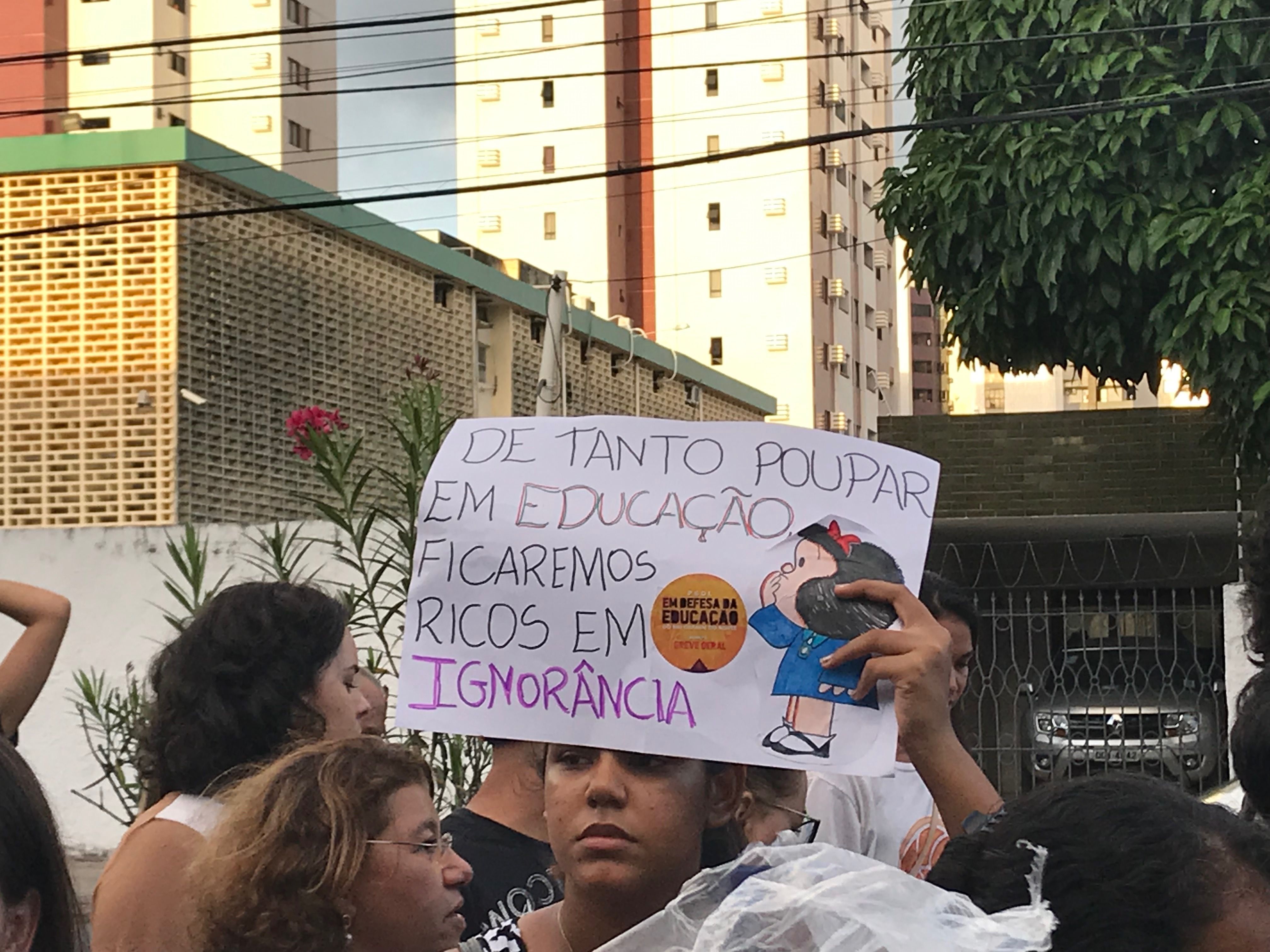May 30, 2019
I decided to come back home to Brazil a few weeks before my field reporting really starts to be able to line up interviews and familiarize myself with the challenges surrounding the demarcation of indigenous land. However, given Brazil’s current political makeup, I now find myself writing my first field note before I even get to the “field” where I will begin my reporting.
Exactly a month ago, on April 30, the Ministry of Education (MEC) announced a major cut on federal funding for education. The announced cuts will reduce by 30 percent, on average, federal funding destined towards federal universities and other federally-funded institutions. Up to today, the government has not provided a plan of action or end goal for the 5.8 billion Reals that were cut.
The people took to the streets in a national protest and I joined them. Despite the fact that, since 2013, there have been multiple protest movements at the national and state levels, this was the first protest I ever attended. Given Brazil’s recent dictatorial history, for many Brazilian families, including mine, protesting is closely tied to violence and conflicts with the police. Now, with a former military man taking over as president of Brazil, my family could not help but be extra worried about police violence. When I texted my mom I was planning on going to the protest I received a shook emoji face as a reply and a long audio message begging me to be careful.
However, as I got to the protest, I was pleasantly surprised to see no signs of violence whatsoever. I saw students carrying signs, couples carrying their children on their laps and elderly people marching, all shouting and singing in disapproval of the government’s actions. The ability of the masses to peacefully protest is one of the main pillars of democracy and one that I was able to witness today, despite the disheartening conditions that led to the protests in the first place. Brazil still has a long way to go both in regard to their public education system and Indigenous land policies. Yet, in a time when the shadow of dictatorship and repression still loom large in the memory of many, people filling up the country’s most important streets was a hopeful reminder of democracy in Brazil—and I am glad I was there.

